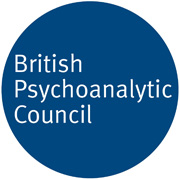Understanding post-traumatic stress disorder (PTSD)
If you are reading this article you may have, or think that you may have, symptoms of post-traumatic stress disorder and/or you are trying to find out information about what it is. Trauma is a more common experience than you may have thought, and it affects everyone differently. Did you know that most of us go through something distressing or traumatic in our lives, such as grief, loss, childbirth, medical emergency, an accident, or any other life changing events, which may have a short or long-lasting impact, but not all of us will go on to develop PTSD? It is estimated that about 50-70% of people will experience at least one or two distressing or traumatic events at some point in their lives and about 6 out of every 100 people will go on to develop post-traumatic stress-disorder.
Most people who go through a traumatic experience may have temporary difficulty coping, however with time, a good support network and effective coping strategies, including talking about their thoughts and feelings, establishing a good daily routine and self-care, they may gradually get better. However, if symptoms deteriorate and last for months, or even years, and it severely impacts day-to-day functioning, then a person may have PTSD.
So, what is PTSD?
PTSD is an anxiety disorder that can develop over time after direct exposure to a stressful event or situation (either brief or long-lasting) or witnessing the trauma happening to someone else or indirect exposure to aversive details of the trauma, usually in the context of professional duties. While people may use the word ‘trauma’ for many different types of stressful experiences, when we talk about PTSD, trauma is normally so shocking, threatening, and terrifying that a person thinks that their own or other people’s lives are in danger. Such events may include, sexual, physical or emotional abuse, victim of a crime, natural disaster, loss of a loved one, accident, injury or illness, divorce or separation.
The presenting symptoms of PTSD include:
- “Reliving” or re-experiencing the traumatic event in the forms of unwanted and intrusive flashbacks, vivid memories and images and recurring nightmares.
- Severe anxiety and/or panic attacks or intense physical reactions in the presence of a reminder(s) of the distressing event.
- Avoiding memories of the traumatic event; avoiding thinking and talking about what happened; avoiding thoughts and feelings of the trauma-related stressors; avoiding external reminders, such as people, situations, objects, and places.
- Negative and distorted thoughts, beliefs and emotions about oneself, others, and the world; difficulty to recall some important aspects of the trauma; feelings of sadness and hopelessness; guilt and self-blame related to the traumatic event, feeling isolated.
- Hypervigilance or feeling on edge or emotionally numb; trouble sleeping and concentrating; irritability and angry outbursts; and risky or destructive behaviours.
Epidemiologic studies suggest that PTSD is also linked to negative physical health outcomes and medical issues, such as chronic pain, asthma, diabetes, joint pain, digestive disorders, arthritis, and cardiovascular diseases.
Watch this video to learn more about PTSD
You may have a few or many of the above listed symptoms, which have a devastating and life-altering impact on your life. If your symptoms occur more than six months after the traumatic event, you may have ‘delayed-onset PTSD’. If you experienced chronic trauma at a young age or if the trauma lasted for a long time, you may have ‘complex PTSD’. Read my article on complex PTSD for more information. In recent years, it has been recognised that the diagnosis of PTSD is not developmentally sensitive, as it does not account for the developmental effects of exposure to childhood trauma on the developing child. Please read here about developmental trauma disorder.
The main treatments for PTSD are psychological therapies, including trauma-focused CBT, narrative exposure therapy, EMDR and attachment-focused EMDR, and medicine. Sometimes a combination of both can work well. I specialise in EMDR and attachment-informed EMDR therapy; to learn more about these, please read my articles.
If you think that you may have PTSD and would like to get psychological support, please do get in touch here.









